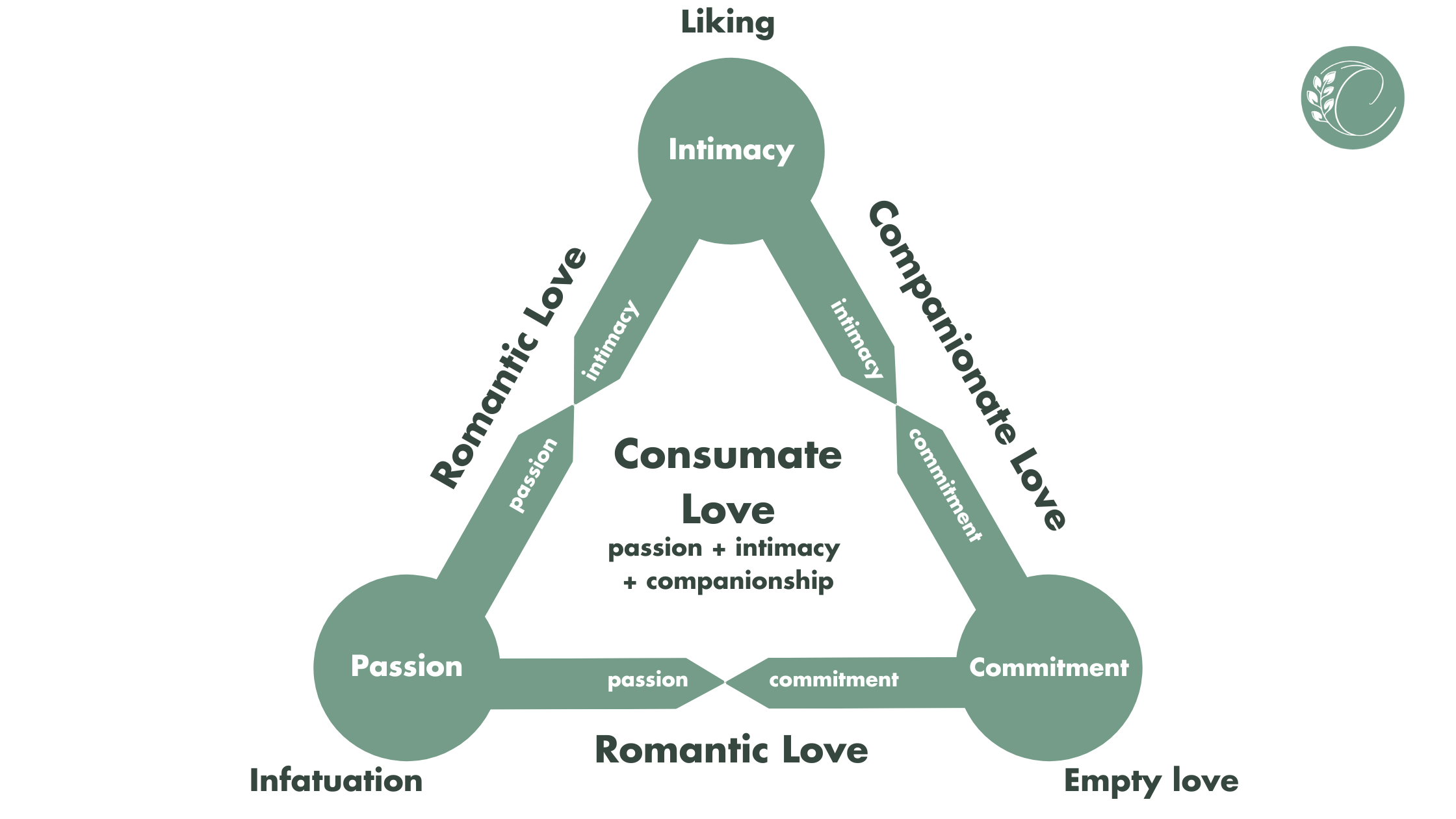So glad you are here. Friday Five is all about being intentional about our mental health. 5 ideas, questions, tools, and resources to encourage you to lean in, care for yourself and reset.
Today we’re exploring true love. And before we get too far, we want to express our hopes for a happy belated Pride Month to our friends in the LGBTQIA2S+ community. Love is love. All people are deserving of healthy relationships! Connected Counselling remains committed to supporting relationships for all, and we anticipate that today’s post will continue that mission.
Today, by exploring Sternberg’s Triangular Theory of Love, we’re asking what makes relationships work? Sternberg is a psychologist who created the Triangular Theory of Love in the mid-1980s, aiming to define what love is and to explore what develops it.
Here are 5 take-aways from his theory:
1. Love is the shape of a triangle. Fun fact: a triangle is the strongest shape because its angles are set specifically to support its weight without collapsing. Like a triangle, lasting relationships must learn to support their shape and weight without fall-out.
2. Consummate love (i.e., true love) is based on the combination of three things: passion, intimacy and commitment (check out the diagram below to see how they function as a triangle).
Intimacy means that we like our partner. We develop intimacy with someone by establishing a bond which helps us to feel close and connected. Sharing only intimacy with someone facilitates friendship, but nothing more.
Passion means we find our partner desirable, captivating and interesting. Passion brings attraction, curiosity and a “spark” with our partners. However, passion alone is simply infatuation or lust.
Commitment can be understood as dedication or loyalty to a partner and may involve a shared vision, shared goals, and shared responsibility toward the relationship. Commitment on its own, however, is “empty love,” lacking joy, desire and romance.

3. Imbalances create unstable relationships. Having only one or two of the three stabilizing parts of true love creates lopsidedness, which is unsustainable for the triangle.
Romantic love which has passion and intimacy is something we see in romance movies. It is categorized by deep conversation and sexual affection which are exciting. But this type of love lacks commitment and will fizzle out, which may leave partners feeling empty or used.
Companionate love is that of a true friendship. It has commitment and intimacy and will result in someone feeling like a best friend. But it will lack passion, or a spark between partners, and may leave couples feeling more like roommates.
Fatuous love has passion and commitment, but no intimacy. This type of love is often impulsive, motivated by whirlwind feelings without the stabilizing influence of liking your partner. This type of relationship rarely works out and may be confusing to the couple and their friends and family.
4. We need to examine our relationships for potential imbalance. We encourage you this week to examine your relationship for its quality of intimacy, passion and commitment. Does one seem out of balance, or appear to be missing altogether, are there strengths you recognize in one area or another? If speaking with a counsellor may help you individually or together please reach out.
5. Strengthen unstable areas. Here are a few ideas to deepen your passion, intimacy and commitment this week:
Building Passion: Reignite the spark by trying something new together! Plan a date, write a poem, or try a new activity. If you’re looking for ideas to explore physical intimacy check out last week’s blog post here.
Building Intimacy: To build emotional closeness, be intentionally kind to your partner, share your thoughts or feelings with them vulnerably, and practice responding to your partner with empathy.
Building Commitment: Reflect together on your relationship, clarify your vision and goals and desires for your relationship. Consider writing your agreed-upon values down to reflect upon down the road.
We hope these ideas help you to build strong and lasting relationships! As always, if speaking with a counsellor may help you to process the ideas shared in this blog, please reach out here.
Melissa Mote, RP(Q)
Social Media & Administration Coordinator




